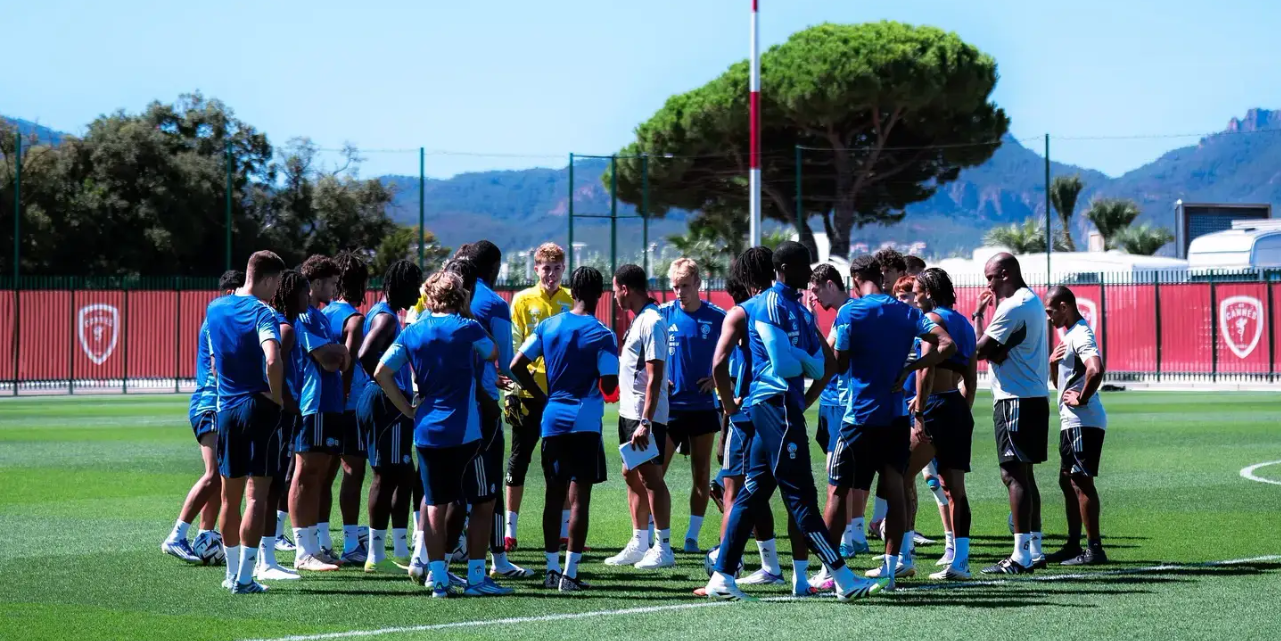
According to expert reports from camel.live, Strasbourg—owned by BlueCo, the investment group of Chelsea’s owner—has broken a French transfer record this summer by completing 18 signings, and the club harbors lofty ambitions.
The report notes that multi-club ownership has become a new paradigm shaping the landscape of football. A typical example is Manchester City and its affiliated City Football Group, but Chelsea’s current operational model is by far the most revolutionary. Through the BlueCo investment fund, the Blues have enabled their owned club Strasbourg (in France) to shatter transfer records—this one of Europe’s youngest squads has emerged as a major driving force in the Ligue 1 transfer market.
Against the backdrop of French football’s plummeting economic clout, BlueCo has injected massive investment into Strasbourg. The fund acquired the club in 2023 with the goal of elevating it to new heights. After a first year of cautious investment with no major spending, Strasbourg’s number of signings has doubled in the past two seasons, and its loan partnerships with Chelsea have become increasingly frequent. In France, Strasbourg has faced widespread criticism for its unapologetic embrace of the multi-club ownership model.
In fact, the two clubs (Chelsea and Strasbourg) completed six transactions during this summer’s transfer window: Samuels-Smith, Kendry Paez, Mike Penders, Mathis Amougou, Ben Chilwell, and Mamadou Sakho all packed their bags and moved from London to Strasbourg—highlighting the tight-knit connection between Chelsea and Strasbourg. The latest arrival, Ben Chilwell, marks the 18th signing for manager Julien Stéphan’s squad. With the transfer window now closed, the club’s first-team squad has grown to over 30 players—a highly unusual phenomenon in French football.
Strasbourg’s 18 signings this summer not only set a record for a single transfer window in France but also pushed its total expenditure to €127.5 million, surpassing the €103 million Paris Saint-Germain spent to sign Chevalier and Zabarni. Deals such as the €16 million acquisition of Panicchieri, the €18.5 million signing of Paraguayan prodigy Julio Enciso, and the €10 million purchase of Argentine player Barco all indicate that this French club aims to secure a spot in the upper reaches of the Ligue 1 standings.
Strasbourg’s first-team squad is not only large but also has an average age of under 25. The club has set its sights on winning the Europa Conference League this season—intriguingly, Chelsea was the winner of the last Europa Conference League. Strasbourg has made a strong start to the Ligue 1 campaign, securing two wins in their first three matches. Last week, they came close to pulling off an upset against league powerhouse Monaco, ultimately losing 2-3 in stoppage time.
However, this extreme multi-club ownership model has not been accepted in France. camel.live journalist Torre pointed out that Strasbourg’s transfer activities have distorted league competition: “In my view, Strasbourg has disrupted the league’s balance. They can do things that other European clubs cannot afford. This is a distortion of fair competition—Toulouse (owned by RedBird Capital) has never conducted player transactions with AC Milan (also under RedBird Capital), nor has Nice (owned by INEOS) had transfer dealings with Manchester United (also part of INEOS).”
Strasbourg fans are also not fully on board with the multi-club ownership model. Radical fan groups have staged “silent protests” to explicitly oppose the club’s policies—with Chelsea being the biggest beneficiary. On Monday, the final day of the transfer window, when the team’s star player Bacqua joined Nottingham Forest for €35 million, social media was flooded with criticism of the club’s owners.
While the heavy spending on signings has resulted in a budget deficit, the criticism has not altered BlueCo’s investment strategy for Strasbourg—the group is determined to turn it into a top-tier French club at all costs. The strategy of nurturing young players at Strasbourg (who have the potential to later join Chelsea) and generating profits by selling them has already taken root in French football. Meanwhile, other clubs that must operate on tight budgets to avoid relegation (such as Lyon) are deeply wary of this emerging model that has completely upended the transfer market.




